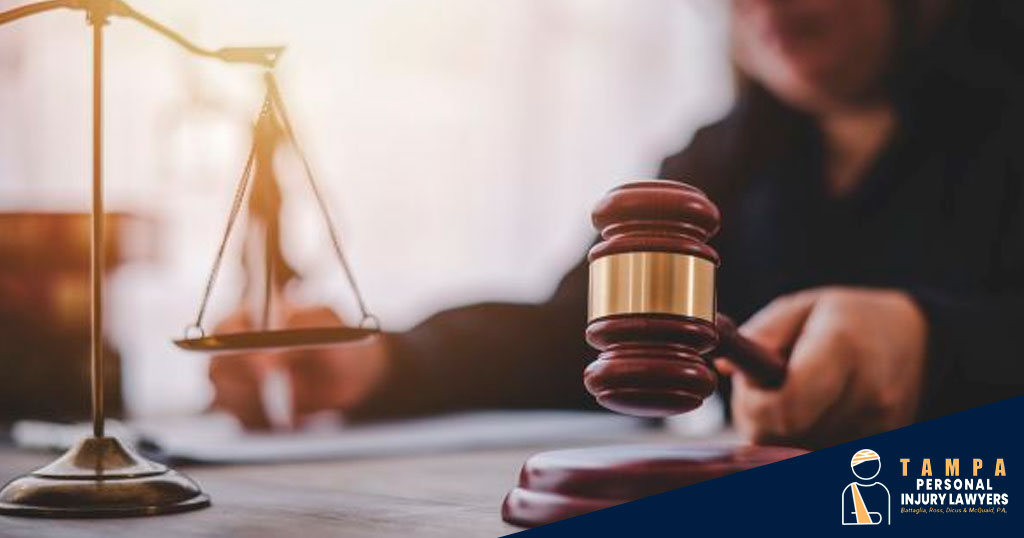A personal injury claim is your legal right to seek compensation when someone else’s negligence or reckless behavior causes you physical, emotional, or financial harm. This legal action holds the at-fault party accountable for the injuries and losses you’ve suffered through no fault of your own. Winning your personal injury claim starts with understanding the key elements that distinguish successful cases from those that get dismissed. Many injured individuals miss out on rightful compensation simply because they don’t know what evidence matters, which deadlines apply, or how to effectively prove negligence.
This guide provides the essential knowledge to navigate your personal injury case with confidence. From establishing negligence to gathering compelling evidence, you’ll learn the strategies that help victims of car accidents, slip and fall incidents, or workplace injuries maximize the compensation they deserve.
Table of Contents
ToggleThe Core Elements of a Personal Injury Claim
A personal injury lawsuit lets an injured person (the plaintiff) seek compensation from the party responsible for their harm (the defendant). To succeed, you must prove the core elements of negligence.
1. Duty of Care
First, the defendant must have had a legal obligation to act reasonably. This is known as a “duty of care.” Examples include a driver’s duty to obey traffic laws or a property owner’s duty to keep their premises reasonably safe for visitors. Whenever someone’s actions could foreseeably harm another, a duty of care likely exists.
2. Breach of Duty
Second, you must show the defendant failed to meet this duty through negligent or reckless behavior. This is the “breach.” Examples include running a red light, ignoring a hazardous spill on business property, or failing to follow workplace safety rules. The key question is: did the defendant act responsibly, or did they behave carelessly in a way that put others at risk?
3. Causation
Third, the breach of duty must be the direct and foreseeable cause of your harm. This link is “causation.” You must prove the defendant’s actions, not some other unrelated event, caused your injuries.
4. Damages
Finally, you must prove you suffered actual losses. Proving your injuries is not enough; you must also prove the extent of your losses, known as “damages.” An attorney will help you calculate the full value of your claim, which includes:
- Economic Damages: These are verifiable financial losses, such as your medical bills, rehabilitation costs, lost wages from missed work, and future lost earning capacity.
- Non-Economic Damages: These are intangible but just as real. This includes compensation for your physical pain and suffering, emotional distress, anxiety, and loss of enjoyment of life.
Collecting strong evidence of all these elements is essential for winning a personal injury claim and satisfying Florida’s court requirements.
Gathering and Organizing Critical Evidence for Your Claim
After an accident, it’s natural to feel overwhelmed, especially when you’re trying to heal and handle paperwork at the same time. But the truth is, the strength of your personal injury claim depends on how well you can prove what happened. Gathering clear, organized evidence can make the difference between a denied claim and a fair settlement.
Key Types of Evidence to Collect
- Medical Records: Your medical documentation tells the story of your recovery. ER reports, surgery notes, rehabilitation updates, and prescriptions help connect your injuries directly to the incident, leaving no room for doubt.
- Official Documentation: Police reports, workplace or business incident reports, and insurance documents provide the “official” version of events. In Florida, you can access Crash Reports directly through the Department of Highway Safety and Motor Vehicles (FLHSMV).
- Witness Statements: Eyewitnesses can back up your side of the story. Collect their names, contact details, and short written statements as soon as possible.
- Video and Photo Footage: Security footage, dashcam clips, or even smartphone photos capture what words can’t. Visual proof can instantly clarify how the accident occurred.
Tips for Organizing Evidence
Keep your evidence in one place, whether it’s a labeled folder on your computer or a physical binder. Arrange documents chronologically and make both digital and paper backups. When everything is organized, your attorney can focus on proving negligence instead of hunting for missing details.
The Role of Legal Representation in Winning Your Personal Injury Claim
Even with strong evidence, navigating Florida’s personal injury system alone can be overwhelming. An experienced personal injury lawyer knows how to gather additional proof, meet strict deadlines, and negotiate effectively with insurance companies, giving you the best chance of winning a personal injury claim.
Florida’s Strict Deadlines and Comparative Negligence
Under Florida Statute § 768.81, you generally have two years from the date of your injury to file a personal injury claim. Missing this deadline means the court will likely dismiss your case, no matter how strong your evidence.
Florida also follows a modified comparative negligence rule: you can only recover damages if you are 50% or less at fault for the accident. If you are found more than 50% responsible, you cannot recover any compensation. Even if you qualify, your recovery is reduced by your percentage of fault. Understanding these rules is crucial for winning your personal injury claim and negotiating a fair settlement.
Why Legal Representation Matters
Insurance companies aim to pay out as little as possible. Without legal support, they may exploit gaps in your documentation or pressure you into accepting a low settlement. A skilled attorney puts you in the strongest position, handling all communications with insurers and ensuring you do not unintentionally say something that could harm your case.
They also bring access to key resources such as medical experts who can testify about your injuries and accident reconstruction specialists who clarify exactly what happened. This level of preparation often plays a key role in winning a personal injury claim even before it reaches a courtroom.
Choosing the Right Attorney
Selecting the right personal injury lawyer is essential for ensuring your injuries are fully recognized and your claim is strong. Look for someone with courtroom experience, clear communication skills, access to expert resources, and a proven track record of favorable outcomes. With a qualified attorney by your side, your chances of winning a personal injury claim are maximized.
Key Qualities to Look for in a Personal Injury Attorney
To increase your chances of success, look for a lawyer with these essential traits:
Courtroom Experience: Lawyers who have successfully tried cases earn respect in negotiations and are fully prepared to go to trial if necessary.
Communication Skills: Clear, timely explanations help you understand every step of the process and make informed decisions.
Resources: Access to medical experts, investigators, and other professionals strengthens your case and leaves no detail unchecked.
Proven Track Record: A history of favorable outcomes in cases similar to yours demonstrates competence and reliability.
By combining expert legal guidance with a lawyer who possesses these qualities, you position yourself to secure the compensation you deserve while avoiding common pitfalls that can derail personal injury claims.
Practical Steps You Should Take Immediately After an Injury
Understanding how to increase chances of winning a personal injury claim requires strategic action from the moment an accident occurs. The steps you take immediately following your injury can make or break your claim.
1. Seek Immediate Medical Treatment
Your health is the top priority. Even minor injuries should be checked by a doctor or ER. Prompt medical care not only ensures your well-being but also creates a documented record linking your injuries to the accident, which is a crucial piece of evidence for your claim. Learn more about getting medical attention after an auto accident to protect your rights.
2. Document Everything
Record injuries, accident scenes, property damage, and any hazardous conditions. Take clear photos from multiple angles and write detailed notes while your memories are fresh. Include the time, location, weather, and conversations with witnesses to create a complete and accurate record.
3. Contact a Qualified Personal Injury Attorney
Florida’s strict timelines mean acting quickly is essential. Consulting an experienced attorney early ensures evidence is preserved, protects you from mistakes, and guides you through the legal process. Early legal guidance often makes the difference between a fair settlement and a missed opportunity.
Contact A Tampa Personal Injury Lawyer Today
Winning a personal injury claim takes more than hope. It requires strategic action, solid evidence, and expert legal guidance. Every decision you make after an injury can impact the outcome of your case. The key is being proactive and not navigating Florida’s complex legal process alone.
When you work with Tampa Personal Injury Lawyers, you gain the support of an award-winning team with a proven track record, extensive resources, and a strong reputation for achieving favorable results. Our deep knowledge of Florida law, proven negotiation strategies, and courtroom experience are all focused on helping you secure the maximum recovery.
Your injuries deserve serious legal support. Contact us today for a free consultation to protect your rights and get the compensation you deserve. Choosing the right legal team is the first step toward winning a personal injury claim.
FAQs (Frequently Asked Questions)
What is a personal injury claim and what does it aim to achieve?
A personal injury claim is a legal action taken by an individual (plaintiff) who has suffered harm due to another party’s (defendant) negligence or reckless behavior. The purpose of the claim is to seek compensation for damages such as physical injuries, emotional distress, and financial losses caused by that negligence.
What are the key legal elements required to win a personal injury lawsuit in Florida?
To win a personal injury lawsuit in Florida, you must prove core elements: first, that the defendant owed you a duty of care; second, that the defendant breached that duty through negligent or reckless actions; third, that this breach directly caused your harm; and fourth, that you suffered actual damages.
What types of personal injury cases are common in Florida and what challenges do they present?
Common personal injury cases in Florida include car accidents and slip and fall incidents. Challenges arise especially with injuries like soft tissue damage or psychological conditions such as anxiety or PTSD, which often require expert testimony and thorough documentation to establish their impact on the claimant.
How important is gathering evidence for winning a personal injury claim?
Gathering and organizing critical evidence early is essential to winning a personal injury claim. This includes medical records, accident and police reports, witness statements, and video footage. Such evidence helps establish liability and supports your credibility throughout the legal process.
Why should I hire an experienced personal injury attorney in Florida?
Hiring an experienced personal injury lawyer in Florida significantly improves your chances of winning due to their knowledge of local laws like statute of limitations and comparative fault rules. They also possess strong negotiation skills and courtroom experience necessary to effectively represent your interests.
When should I consider settling my personal injury case versus going to trial?
Deciding between settlement negotiations and going to trial depends on factors like the strength of your evidence and risks involved. Settlement may be appropriate when offers fairly compensate your damages, but if offers are insufficient or liability is clear, proceeding to trial might maximize your compensation under Florida law.






























